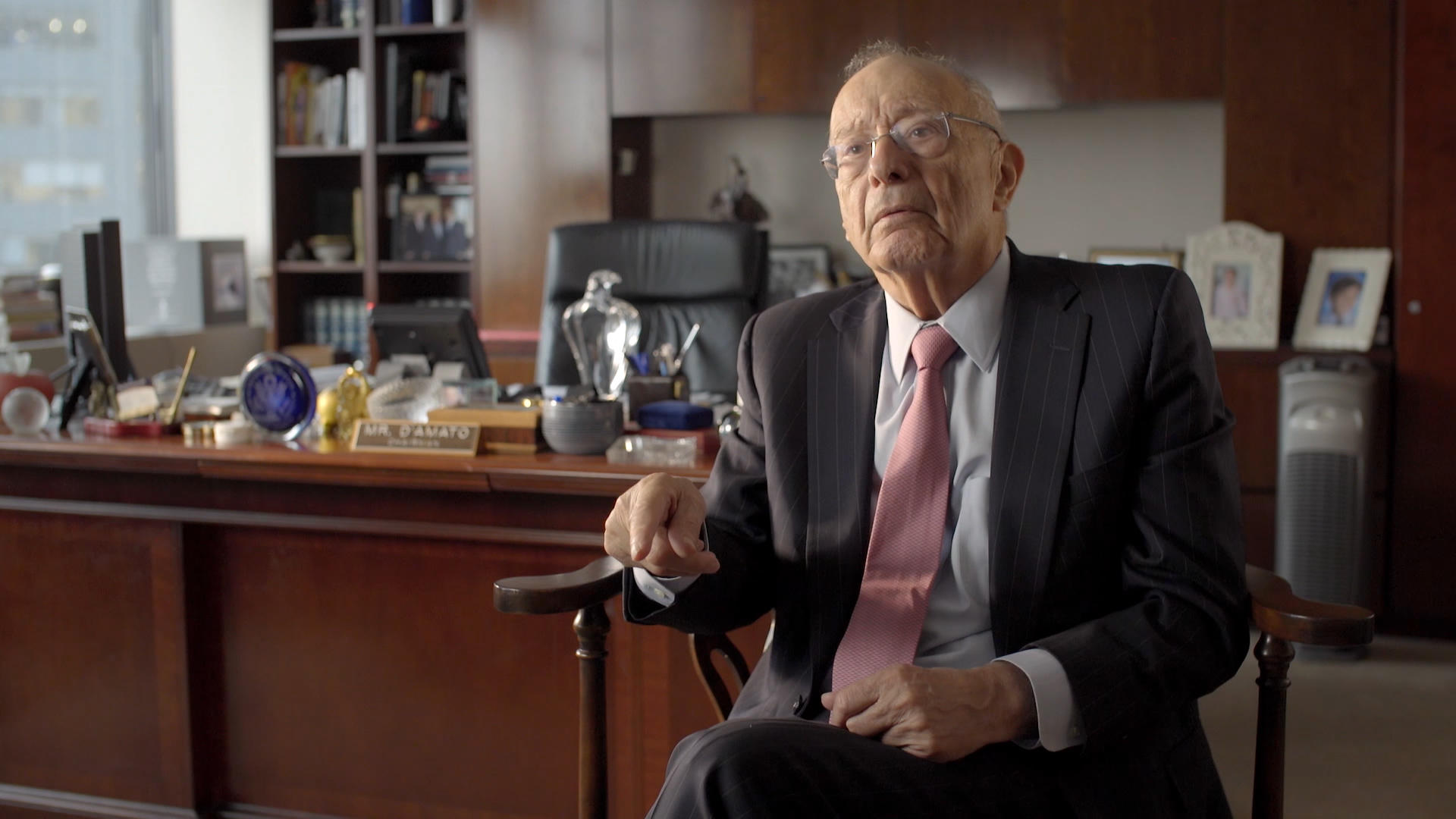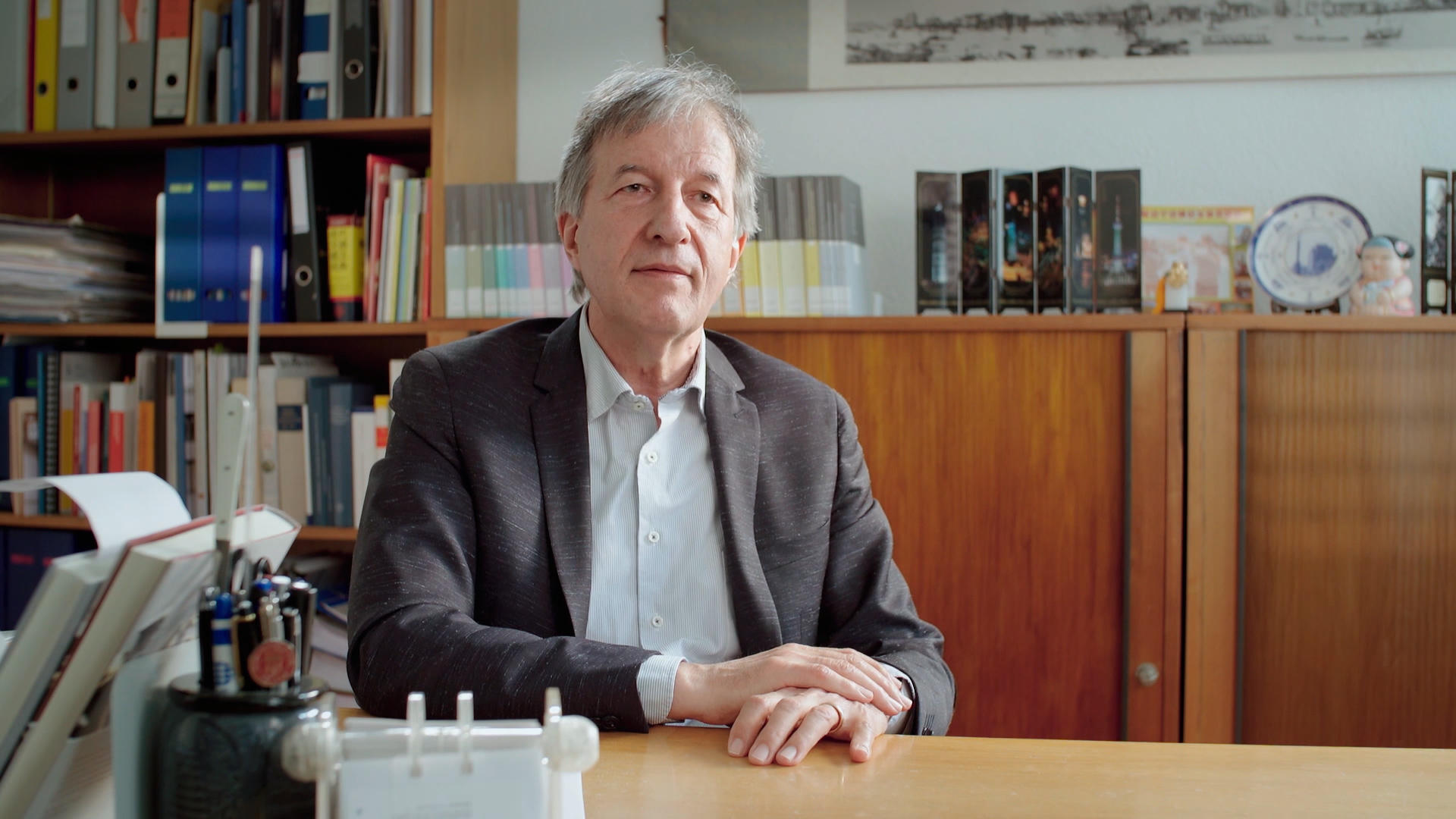
How the Holocaust-Swiss banks deal was brokered

It has been 20 years since Swiss banks agreed to compensate Holocaust victims for assets lost during the Second World War. A documentary takes a look at the dormant Swiss bank account scandal.
The conflict over Jewish assets in Swiss bank accounts culminated in the 1990s in what would become Switzerland’s largest foreign policy crisis since the Second World War.
The following report and embedded videos are from a Swiss documentary, The Meili StoryExternal link.
Everything started with Greta Beer. She is 97 today and lives in Boston. Her father was a wealthy textile manufacturer in Germany before the Second World War with bank accounts in Switzerland. After the war, Beer and her mother’s search for their father’s money in Swiss banks was in vain.
Her case became public in the 1990s and eventually led Republican Senator Alfonse D’Amato, Chairman of the Banking Commission, to invite her to a hearing in Washington.

More
Alfonse D’Amato
The Swiss government underestimated the brewing storm on the other side of the Atlantic. It was up to the then Interior Minister Ruth Dreifuss, who is Jewish, to inform her cabinet colleagues of Switzerland’s actions during the Second World War.

More
Ruth Dreifuss
The young diplomat Thomas Borer was called on to head up a task force “Switzerland – Second World War” and become the government’s point man. His friends advised him against it, calling it a suicide mission.
Once he’d taken on the job, Borer developed two strategies for negotiations with Jewish stakeholders: the first recommending an immediate payment to Jewish organisations and the other to take a hard line.
In the US, Borer met Switzerland’s main critic, senator Alfonse D’Amato. Back at home, he tried to get government ministers to agree a common position, and to say nothing more than Switzerland stood for truth and justice.
But Economics Minister Jean-Pascal Delamuraz gave an interview to the French-language press, accusing Jewish organisations of extortion and ransom demands. D’Amato still remembers the extortion charge.

More
Alfonse D’Amato
There’s more bad press to come. On May 7, 1997, a report on the gold trade between the neutral states and Nazi Germany is published. At the centre of the investigation: Swiss banks.
The report states that the Swiss National Bank was the recipient of large amounts of Nazi plunder from countries Germany had occupied, including gold from the teeth of concentration camp prisoners. The thesis was put forward that through such purchases Switzerland helped prolong the war.

More
Jakob Tanner
Switzerland had to come to terms with its past. The debate about the country’s wartime role was a central feature defining its identity: neutrality.

More
Ruth Dreifuss
In December 1997, UBS is created through a merger. The US Banking Commission under Alfonse D’Amato must grant UBS access to the all-important US market. The new UBS bosses know that access to the US is existential.
Half a year later, on August 12, 1998, Senator D’Amato announces that a settlement has been reached. The Swiss big banks agree to pay Holocaust survivors compensation of $1.25 billion (CHF1.86 billion in 1998). D’Amato called it a “good solution” for people who had suffered through a very difficult situation.
In the long run, it was not a huge sum for the banks, says historian Tanner.

More
Jakob Tanner
The distribution of the funds to survivors of the Holocaust took years. The final payment wasn’t made until 2013 – 15 years after the agreement was signed.
The Council of the Swiss Abroad has approved a proposal to launch a memorial project for Swiss victims of the Nazi Holocaust during the Second World War. Its form could take the shape of a plaque in a public place.
About 1,000 citizens of neutral Switzerland – living as expats in Europe during the Nazi era – were arrested and deported to Nazi labour camps. According to records in the Federal Archives, more than 200 of them were killed. However, the total number of Swiss victims is believed to be higher.
The Organisation of the Swiss Abroad will now discuss the memorial with Jewish organisations, the Swiss Red Cross and the foreign ministry.

In compliance with the JTI standards
More: SWI swissinfo.ch certified by the Journalism Trust Initiative





























You can find an overview of ongoing debates with our journalists here . Please join us!
If you want to start a conversation about a topic raised in this article or want to report factual errors, email us at english@swissinfo.ch.